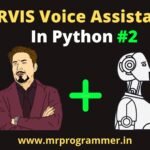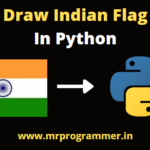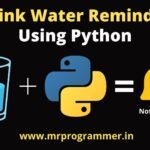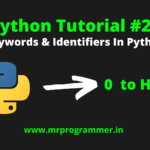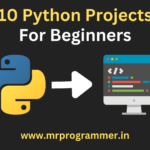Table Of Contents:
• Best Python Libraries You Should Learn
• Top 5 Python Libraries
• Top 5 Python Libraries
• Conclusion
Python is Most Used & Most Popular Programming Language Of All Time, It is Mostly used for Machine Learning & AI ( Artificial Intelligence ). The Intresting Thing About Python is It Supports a Large Collection Of Libraries.
If you Don’t Know Python, Then First you Should Learn Python Before Heading to Discover Python Libraries. And If you Already Know Python Or Just a the Basics Of Python Then you Can Go For Any Python Library.
Best Python Libraries You Should Learn
What Is a Library In Python?
A Library is a Like a Bunch of Code Stored In a Particular Package. There are more than 137,000 libraries in python, You can Create many Projects By Using Data Visualization, Machine Learning And Data Manipulation. There are also Many Open-Source Python Libraries.
Top 5 Python Libraries
1. TensorFlow
TensorFlow is a free and open-source software library for machine learning and artificial intelligence. It can be used across a range of tasks but has a particular focus on training and inference of deep neural networks.
Features Of TensorFlow:
- Open-source Library
- Easy to Run
- Fast Debugging
- Flexibility
- Effective
- Scalable
TensorFlow Applications:
- Image Recognition
- Voice Recognition
- Video Detection
- Text-based applications
2. NumPy
NumPy is a library for the Python programming language, adding support for large, multi-dimensional arrays and matrices, along with a large collection of high-level mathematical functions to operate on these arrays.
Features Of NumPy:
- It is Fast, Precompiled Functions For Numerical Routines.
- Array-Oriented Computing
- Supports Object Orientation
- It contains tools for integrating code
- It consists of broadcasting functions
Applications NumPy:
- Used for Data Analysis
- Creates Powerful N-Dimensional Arrya
- Forms the base of other libraries, such as SciPy and scikit-learn
- Replacement of MATLAB when used with SciPy and matplotlib
3. SciPy
SciPy is a free and open-source Python library used for scientific computing and technical computing. SciPy contains modules for optimization, linear algebra, integration, interpolation, special functions, FFT, signal and image processing, ODE solvers and other tasks common in science and engineering.
Features Of SciPy:
- It has a Support of Algorithms & Functions
- High Level Commands
- Multidimensional image processing
- built-in functions for solving differential equations
Applications SciPy:
- Multidimensional image operations
- Solving differential equations and the Fourier transform
- Optimization algorithms
- Linear algebra
4. Pandas
pandas is a software library written for the Python programming language for data manipulation and analysis. In particular, it offers data structures and operations for manipulating numerical tables and time series. It is free software released under the three-clause BSD license.
Features Of Pandas:
- High-level abstraction
- Contains high-level data structures and manipulation tools
- Input and output tools
- Cleaning up data
Applications Pandas:
- General data wrangling and data cleaning
- Recommendation Systems
- Stock Prediction
- Analytics
5. Keras
Keras is an open-source software library that provides a Python interface for artificial neural networks. Keras acts as an interface for the TensorFlow library. Up until version 2.3, Keras supported multiple backends, including TensorFlow, Microsoft Cognitive Toolkit, Theano, and PlaidML.
Features Of Keras:
- Modularity
- Large Dataset
- Encoding in Keras
- Layers in Keras
Applications Keras:
• Deep Learning Models
Conclusion:
Learning a Python Library will help you In Building your Projects, And Makes Your Python Programming Simpler & Easy to Learn For a Beginner. If you are a Beginner then you Should Master Python & Then Go For Python Library. And Learning a Python Library Will Also Reduce your Programming Time Wasted On Solving Bugs & Errors, In Short a Python Library Make a Python Developer Journey Easy to Code.
- I Tried ChromeOS Flex After Switching From Windows 10 - October 13, 2025
- Top 5 Business Skills Every Programmer Needs to Get Hired (2025 Guide) - August 27, 2025
- Intel’s Downfall? How a Silicon Titan Lost the Plot—and What Comes Next - August 26, 2025
